Photography Lighting & Studio Category
Our Lighting & Studio category covers the latest and best lights and studio equipment you can buy in 2025.
Latest Lighting & Studio Posts
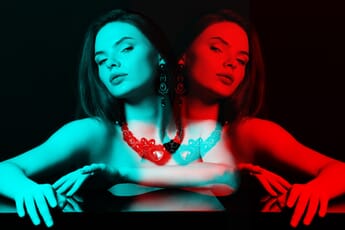 Best RGB Light for Photography: Top Picks and Essential Guide If your work commands color, then you may be interested in the world of RGB lights! Take a look at the best RGB light for photography - whatever your needs!
Best RGB Light for Photography: Top Picks and Essential Guide If your work commands color, then you may be interested in the world of RGB lights! Take a look at the best RGB light for photography - whatever your needs!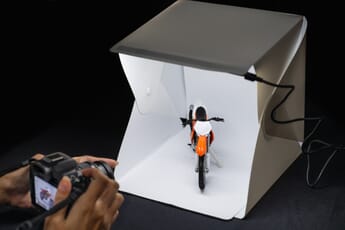 Best Light Boxes for Photography: Top 10 Picks in 2024 Our top 10 best light boxes for photography in 2024. Plenty of great options for pros and beginners on a budget.
Best Light Boxes for Photography: Top 10 Picks in 2024 Our top 10 best light boxes for photography in 2024. Plenty of great options for pros and beginners on a budget.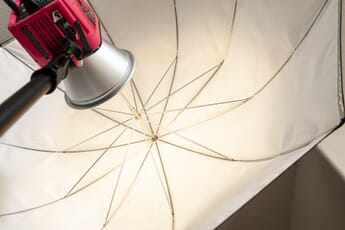 Best Strobe Lights for Photography: Our Top Picks for Well-Lit Photos! Finding the perfect strobe light for photography can be tough. We offer a rundown of the best strobes on the market.
Best Strobe Lights for Photography: Our Top Picks for Well-Lit Photos! Finding the perfect strobe light for photography can be tough. We offer a rundown of the best strobes on the market.Lighting & Studio Posts Ranked by Popularity
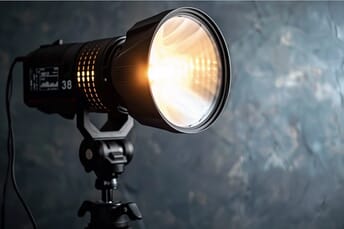 Best Continuous Lights for Photography and Videography Need a light that doesn't flash? Check out the 10 best continuous lights for photography. Enhance your portraits, product shots, and more!
Best Continuous Lights for Photography and Videography Need a light that doesn't flash? Check out the 10 best continuous lights for photography. Enhance your portraits, product shots, and more!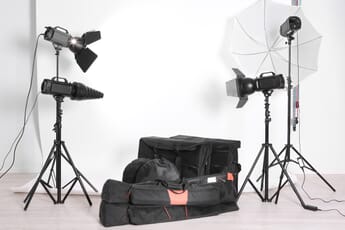 The Best Portable Lighting Kit for Photography (7 Picks in 2024) Illuminate your photography subjects with the best portable lighting kit. We share our top strobe and continuous lighting options for all budgets.
The Best Portable Lighting Kit for Photography (7 Picks in 2024) Illuminate your photography subjects with the best portable lighting kit. We share our top strobe and continuous lighting options for all budgets.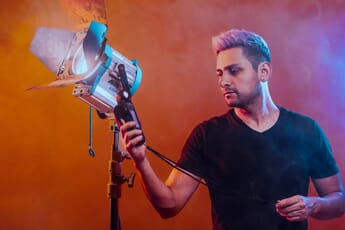 The Best Light Meters in 2024: The Ultimate Guide (5 Great Picks!) What are the best light meters in 2024? Discover the top five light meters on the market for any budget. Increase your exposure accuracy!
The Best Light Meters in 2024: The Ultimate Guide (5 Great Picks!) What are the best light meters in 2024? Discover the top five light meters on the market for any budget. Increase your exposure accuracy!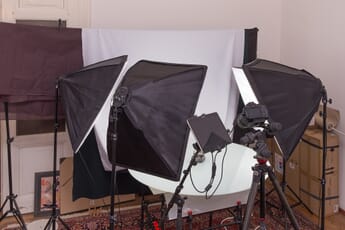 9 Best Rotating Stands for Photography Find the perfect rotating stand for photography. We share 360-degree turntables for all budgets (and we include some tips to get started!).
9 Best Rotating Stands for Photography Find the perfect rotating stand for photography. We share 360-degree turntables for all budgets (and we include some tips to get started!).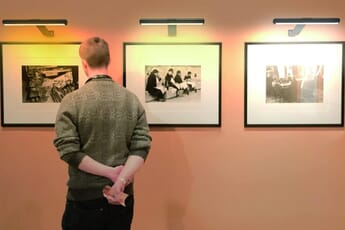 Best Battery Operated Picture Lights to Highlight Your Photo Prints and Wall Art Your photo prints and wall art deserve to be in the spotlight, too. The best battery operated picture lights can help make that happen.
Best Battery Operated Picture Lights to Highlight Your Photo Prints and Wall Art Your photo prints and wall art deserve to be in the spotlight, too. The best battery operated picture lights can help make that happen.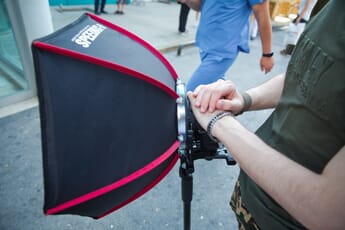 The Best Softbox for Speedlights: Our Top Choices for Every Photographer Are you looking to get stunning images with your speedlight? Discover our pick of the best softbox for speedlights to boost your setup now!
The Best Softbox for Speedlights: Our Top Choices for Every Photographer Are you looking to get stunning images with your speedlight? Discover our pick of the best softbox for speedlights to boost your setup now!Discover Lighting & Studio Equipment on PhotoWorkout
Welcome to the Lighting & Studio category of PhotoWorkout.com, your ultimate resource for in-depth, trustworthy reviews and guides on the latest and best lights and studio equipment available in 2025. Our mission is to provide the highest quality content to help both professional and beginner photographers in selecting the ideal lighting and studio equipment for their needs.
Navigate our extensive range of posts such as the Top 10 Best Light Boxes for Photography where we detail our favorite choices for pros and those on a budget. Alternatively, check out our guide on the best strobe lights to ensure your photos are always well-lit, or delve into our favorite lighting options for food photography, with a few handy tips thrown in!
We also have detailed guides on niche topics such as the Best RGB Light for Photography, The Best Portable Lighting Kit, and The Best Battery Operated Picture Lights to highlight your photo prints and wall art.
For those delving into product photography, our best rotating stands for photography guide is a must-read. We also explore specialized gear such as softboxes for speedlights.
As part of our commitment to provide a complete guide for photographers, we offer related categories such as Tripods & Gimbals, Bags & Straps, Photo Storage, and Lens Filters. Enjoy exploring PhotoWorkout.com for all your photography needs!
